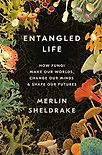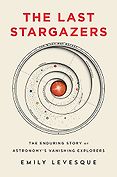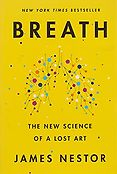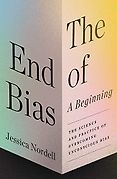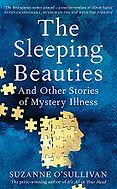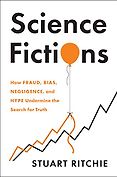We’re here to discuss the 2021 shortlist for the Royal Society Science Book Prize, which highlights the best popular science books of the year. What are you, the judges, looking for? What unites the best popular science books?
That’s the key question. We’re scientists, so shouldn’t we have criteria? Well, it’s obvious that readability is really important: the best popular science books are well-written, with a really engaging style. In terms of content, we’re looking for rigorous science, topics that interest us, where the basis for what’s being discussed is highly scientific. And the topic should be important: the book should influence and inform us, maybe even change how we do things.
Let’s forge straight on through the books. Could you talk us through The Last Stargazers: The Enduring Story of Astronomy’s Vanishing Explorers by Emily Levesque. It’s all about the hidden world of the professional astronomer.
Yes. It’s by a female astronomer in a very male-dominated science, historically. There have been some very famous female astronomers, mind you, but she describes her own career, and how she navigated that world. She gives a really good account of the telescopes in Chile and Hawaii—all the challenges, all the things that broke down, bad weather, all sorts—and goes into detail on the great discoveries astronomers have made. Towards the end, she talks about the future of astronomy: now you can do it all remotely, just download data from the telescope. She makes a compelling case of how the science will change because of this.
I see: you no longer need to look physically through the telescope at all. Hence ‘the last stargazers.’ Such a poetic idea. I’m glad there’s a book to mark this transition.
Yes. And the range here is massive—the history of astronomy, and then looking to the future of the field.
Next on the shortlist for the title of best popular science book of 2021 is James Nestor’s Breath: The New Science of A Lost Art. It has an intriguing premise: that the thing we do unthinkingly 25,000 times a day can have an incredibly powerful impact on almost all aspects of our lives. Can you tell us more?
Imagine a whole book about breathing! But there was a necessity, I think. Nestor is a journalist; he goes into everything you need to know about breathing. We learn that no matter what you eat, no matter how you exercise, how wise you are—none of it really matters if you’re not breathing properly. It’s all about breathing through your nose, basically. Historically, the Buddhists knew this. People knew how to breathe properly through practices like meditation. One fact that really got me was that the way that Catholics pray the rosary tuns out to be a perfect form of breathing.
Get the weekly Five Books newsletter
He talks about how, if you breathe incorrectly, you have a higher risk of autoimmune disease or asthma. He talks about athletes and how they can use breathing to enhance their performance. It’s just another really good example of a topic you wouldn’t think of as promising, but he’s able to cover it in great detail over the course of the book. And there’s a self-help aspect towards the end—a useful guide on how to breathe.
I like that this knowledge has existed and been passed down through ancient practices, but is only now being codified in science.
Yes. The ancients knew what they were doing. Just empirically, I suppose. They observed that this was the correct way to breathe for health, and the scientists came along later.
Well, I’ll certainly make sure to breathe more deeply in future. Maybe we can move on to The End of Bias: How We Change Our Minds by Jessica Nordell. Likely a book we all need to read: it’s about unconscious bias. Why is this one of the best popular science books of 2021?
Again, it’s a sweeping account of a very important topic, because we are all biased—consciously or unconsciously. You see bias in all directions: men versus women, black versus white. One interesting, serious case is how doctors can be biased toward their patients: women are treated less seriously by their doctors, and are less inclined to get the treatment that their condition deserves.
A good part of this book addresses whether there is a way to counter this bias. In the case of medicine, there’s the checklist—the doctor can make sure to go through a checklist to ensure each patient is treated equally. There’s a lot on police in America, and the training they are using to reduce bias. Nordell makes the case that we’re biased by nature, so it’s down to us to decrease bias.
Yes, and especially in medical professionals, police, lawmakers. Because they are people in whom we place a great deal of trust. We have seen evidence of a widespread loss of trust resulting from racial bias in policing, for example. Next up, we have another interesting medical text: this is The Sleeping Beauties, and Other Stories of Mystery Illness by Suzanne O’Sullivan. We’re fans of Suzanne’s here on Five Books: she previously spoke to us about books on psychosomatic illnesses while promoting her earlier book It’s All in Your Head. Why is this new book one of the best works of popular science of 2021?
This is a bit like a detective story. O’Sullvan is a neurologist, who specialises in epilepsy. Some of the patients she would see have these strange seizures, that’s how she got into it, I suppose. In the book, she goes around the world to explore these examples of young women who have gone, suddenly, into comas, and cannot be raised. Or they’ve developed epilepsy suddenly. She goes to Sweden, upstate New York, Kazakhstan, and then characterises them all. It’s a good clinical account of our most unusual situations—which aren’t as uncommon as you might think. But how do we define them? She calls them ‘functional neurological disorders’, which seems a better definition than, say, ‘hysteria’.
I was surprised by some of the virulent response to that earlier book from some quarters: I think patients are often very upset to have their medical issues diagnosed as psychosomatic.
Often these things are written off, but the conditions can be very serious, very genuine and very debilitating. And then she gives, I suppose, a sociopolitical reading—some of the young women are in immigrant communities in Sweden, and this is the way in which they express themselves. Then there’s how Western medicine is failing them. She’s very big on that. O’Sullivan is saying: these are real conditions, they have to be taken seriously, how can we understand them? And how can we treat people who have them better. So it’s a travelogue detective story that turns out to be an important topic.
Absolutely, a journey into the shadowlands of medicine. The fifth title on your shortlist of the best popular science books of 2021 is Science Fiction: Exposing Fraud, Bias, Negligence and Hype in Science by Stuart Ritchie. This one poses what feels to be a frightening question: can science be trusted?
Humans do science, that that means it’s flawed, you know? Maybe they over-hype their findings, sometimes they are biased in their analysis or data collection. He gives several well-known examples—Andrew Wakefield’s MMR paper, or Paolo Macchiarini’s work on transplantation. He reaffirms what science should be about—nullius in verba, take nobody’s word. Which is in fact the Royal Society’s motto.
Five Books interviews are expensive to produce. If you're enjoying this interview, please support us by donating a small amount.
He comes up with ways to limit the damage to science, which makes it quite an important book because you want to ensure science is done to the highest possible standard. He talks about the pressure on young scientists to publish, and how that can give rise to fraud—although that’s probably pretty rare, mercifully—and can also give rise to sloppiness. He’s good at describing the problem and then the possible remedies to save science.
My own background is in experimental psychology, so I know there’s been a big scandal over researchers not being able to reproduce findings that have formed a basis to later work.
Yes, the replication crisis. Sadly, some branches of science are worse than others, and psychology is one of them. It looks like perhaps the sample sizes weren’t big enough for statistics to be done properly, as opposed to outright fraud. Usually it’s something like that. But it’s all about the standards within science.
Finally, we have Entangled Life: How Fungi Make Our Worlds, Change Our Minds and Shape Our Futures by Merlin Sheldrake. It’s been a publishing phenomenon. Will you tell us about this book?
Yes. This is an outstanding science book, actually. And again: who would imagine you’d enjoy a doorstopper of a book about fungi? He goes through everything you need to know about fungi: he talks about truffles, about psychedelic mushrooms, about yeast and alcohol, penicillin. All those thing are based on fungi, of course. He even makes the case that life wouldn’t have to moved onto land without fungi, because it was some kind of symbiotic relationship between plants and fungi that brought the first land-dwelling plants, in a way—the land was colonised by plants before the animals, and we descended from those animals.
“We’re looking for rigorous science, topics that interest us, where the basis for what’s being discussed is highly scientific”
He also talks about bioremediation, how fungi could well digest plastics, which would be tremendous. And the ‘wood wide web’, where trees are connected underground through fungal mycelium networks—if one tree is injured, say, it sends a signal to the fungal network to say there’s something toxic, and the other trees can respond. I thought that was fascinating. So, again, great science and really well written.
As chair of the judges for the 2021 Royal Society Science Book prize, you’re in an excellent position to tell us: is popular science writing in a good place?
Definitely. They sent me 267 books, all those that were nominated. We did an initial cut to get the numbers down, but there are a huge number of good books on interesting topics. Perhaps lockdown encouraged all these writers to finally get those books done. Who knows? Certainly it’s been a great year for science books.
Do you do you think that you’ve learned from these science books—techniques or approaches that you’ll bring forward into your own work?
I have. I mean, you quickly see what works and what doesn’t. A great opener is always good. Strong examples. Make it interesting. Obviously that’s the key thing: all six of these books are really interesting. They got on to the shortlist because we all wanted to read them in detail. So that’s the key criterion, and they certainly all fulfil that. It will be a very hard job to pick a winner, because they’re all excellent reads.
Interview by Cal Flyn, Deputy Editor
November 10, 2021. Updated: September 21, 2023
Five Books aims to keep its book recommendations and interviews up to date. If you are the interviewee and would like to update your choice of books (or even just what you say about them) please email us at [email protected]

